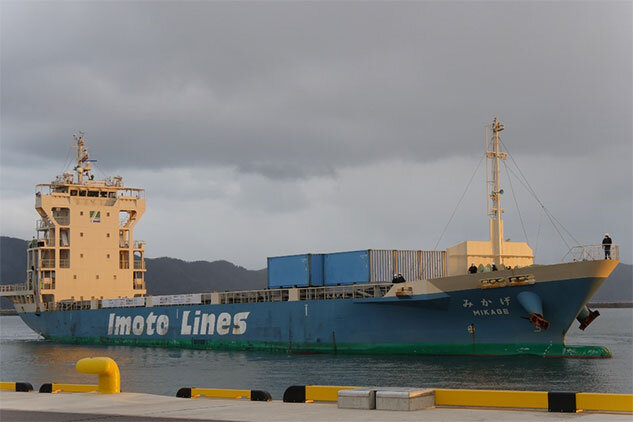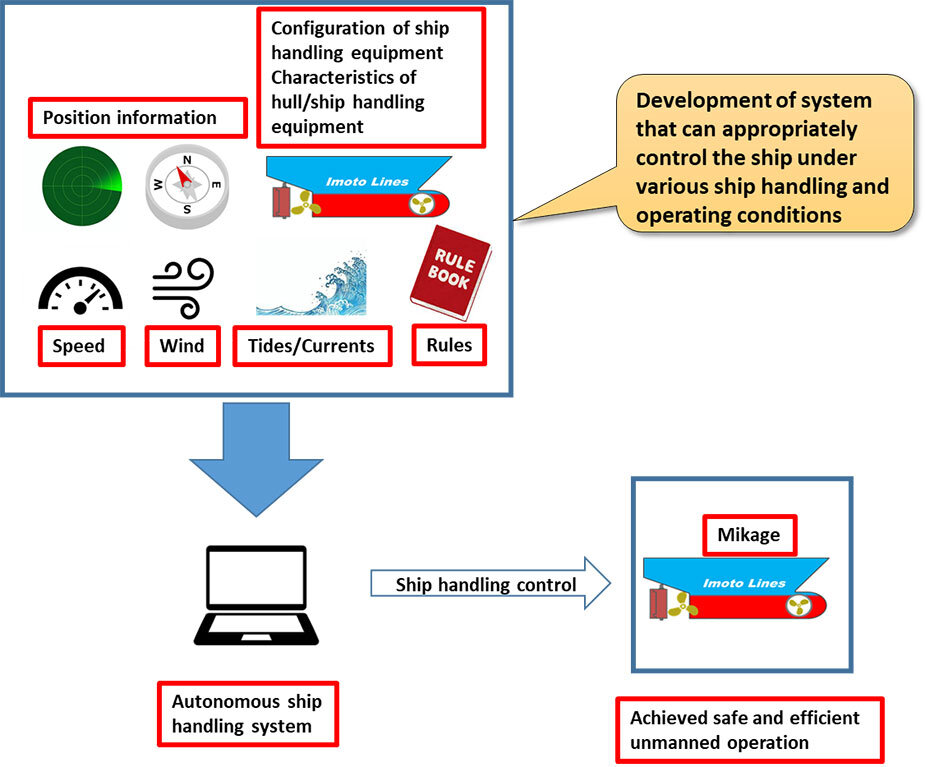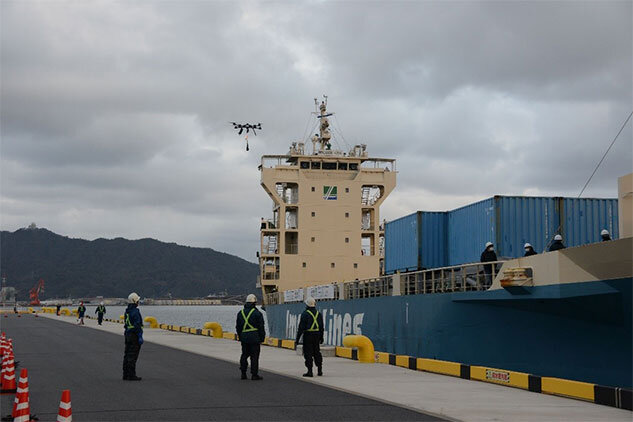A Japanese shipping company has announced that it successfully conducted the world’s first test of an unmanned container ship.
Mitsui O.S.K. Lines said on Tuesday that the vessel Mikage, an autonomous cargo ship, successfully traveled from Japan’s Tsuruga Port in Fukui Prefecture to Sakai Port in Tottori Prefecture — a voyage of more than 100 miles. The historic sea trial was part of the unmanned ship project MEGURI2040, being led by the Nippon Foundation.
A wide array of technology was used to complete the voyage. The ship was able to follow a preformulated route using an autonomous ship operation control system that had to effectively handle several different elements of navigation, including wind, tides, and various navigation rules that ships must follow.

Mikage used an information integration system to gather and interpret data about other ships it came across and how to circumnavigate obstacles it encountered along the route. The system can measure the positions, speed, and types of nearby ships as well as the position of debris.
THE BIGGEST SUPPLY CHAIN STORIES OF 2021
Radar, an automatic identification system, and images captured by camera were used by the autonomous collision avoidance routing system in order to safely navigate the container ship from port to port.

One of the most sensitive and difficult parts of operating a large ship is the berthing process, which is when a vessel is maneuvered into position to dock. Crewmembers typically play the crucial role in berthing. The Mikage, though, did so autonomously using “equipment that calculates and visually displays accurate relative distances and relative angles between the pier and hull,” according to the company.
To automate the process even more fully, the ship also undertook the feat of mooring itself without human crewmembers. Instead of a crewmember throwing the ship’s heaving line from the ship to the dock, an automatic flight drone carried the line from the vessel to the dock. The company said that as technology advances, drone-powered mooring is expected to become a viable alternative to human-powered docking.

The feat comes just days after the Nippon Foundation also succeeded in operating a large and fully autonomous high-speed coastal ferry. The group said that the 222-meter ferry was the first in the world to work using a fully autonomous navigation system. The ferry navigated a 150-mile journey from Shinmoji in Northern Kyushu to Iyonada, which took about seven hours.
The Nippon Foundation envisions autonomous ships being put into practical use by 2025. Human error accounts for the vast majority of marine accidents, something that the unmanned vessel project is trying to fix.
CLICK HERE TO READ MORE FROM THE WASHINGTON EXAMINER
“Using container ships and car ferries as experimental ships, autonomous operation will reduce the labor burden in order to eradicate marine accidents caused by human error, which is an urgent issue in the domestic shipping industry, and to cope with the normalization of seafarer shortages and the aging of seafarers,” the Nippon Foundation said on its website.
